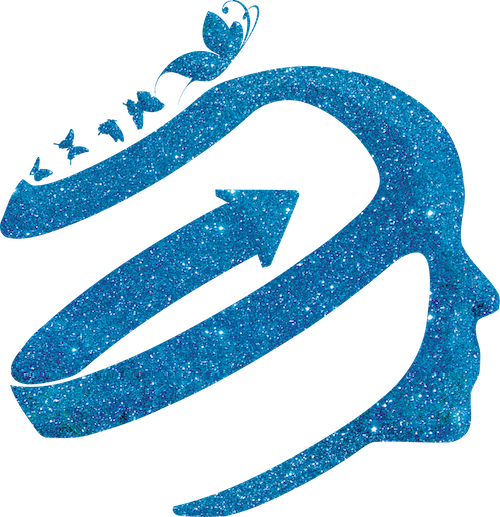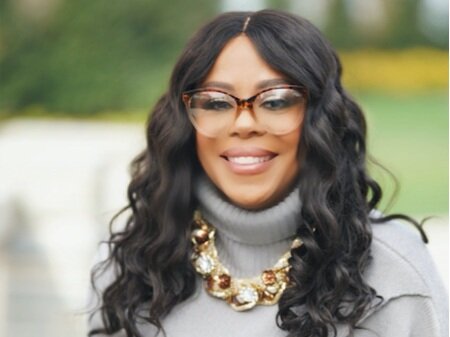LOOKING AT DEPRESSION FROM A DIFFERENT LENS
Often times those diagnosed with clinical depression feel misunderstood, or even shame and guilt as a result of others failing to realize that depression is not a choice. “Many have it worse than you” or “just think happy thoughts so you feel better” or “look at all the good things you got going for you!” are among many of the things those with depression are told. These comments only intensify feelings of depression and guilt for not being able to feel differently. Let’s be clear, clinical depression is not a choice! It can be the result of many things such as genetics and/or the result of a trauma (i.e., death of a loved one, a survivor of abuse, natural disasters, etc.). So how does one with depression cope in a world with so many judgements and criticisms regarding depression or any mental illness for that matter?
1) Self-Compassion
I start by encouraging my clients to have compassion for themselves. Self-compassion is often very challenging. We are quick to empathize with others, however somehow when it comes to having compassion for ourselves; we are the exception to the rule. Depression is not something you woke up and decided to have and/or feel. It is NOT a choice. No one chooses to have asthma, cancer, kidney failure, or depression. Reminding yourself that depression is not a choice and having the same compassion for yourself as you would if you had broken a leg or had asthma, reduces the chances of you intensifying depressive symptoms. Lack of self-compassion allows guilt, comparison, shame and self-defeating thoughts to fuel the symptoms of depression resulting in even more of an increase in intensity and duration. Lack of self-compassion can cause a downward spiral to a very dark place (those who struggle with depression are very familiar with this place). Self-compassion allows you to be human. Self-compassion allows you to be gentle and recognize your needs. Most importantly self-compassion allows room for healing and hope to manifest. Healing and hope cannot be birthed where shame, guilt, criticism, and judgement is being bred.
2) Personal Energy Account
In addition to self-compassion, I share with my clients the concept of protecting their energy. When a person is diagnosed with depression, there are some days where just getting out of bed will take an enormous amount of energy. This is why acknowledging and protecting your energy is important, as a person with depression never knows how much energy they will have on any given day until they wake up. For a person who is not diagnosed with depression, they can depend on waking up with about the same percentage of energy every day even when they are a bit tired. For a person diagnosed with depression, every day is different. One day you may wake up with 90% energy to disperse throughout the day and some days you wake up with 10%. Either way, you have to make conscious decisions on whom, what and how you want to disperse that energy. For those with depression, daily tasks such as showering and eating can take a significant amount of energy. In addition, some of the energy will be needed to utilize coping skills (journaling, thought stopping, opposite actions, mindfulness, etc.).
The overall goal is to take a moment to acknowledge what is in your Personal Energy Account each day without judgment, comparison or criticism, just radical acceptance (a term I can explain in a different article). Be mindful that each activity, even ones such as getting out of bed and getting dressed, will take from your energy reserve, sometimes more so than others. Therefore you giving “your all” will look different on different days. If you woke up with 30% energy in your personal energy account, then taking a shower, getting out of bed and accepting a phone call from a friend (avoiding isolation) may be your best for that day. On another day when you have more energy, you may be able to go out with friends, complete chores, and interact with your children. This is what makes many on the outside mistake depression as a choice. “You were fine yesterday, why can’t you be like that today,” is what you may hear from friends and family. In these moments it is important to remember your Personal Energy Account. Just like your personal bank account, everyone doesn’t know how much you have. There are times you may have to turn down dinner or a trip out of town or compromise eating at a certain restaurant if you need to save and/or don’t have the money to cover it. At those times you may tell those asking “I’m on a budget” or “I will have to pass on this trip”. It is the same concept with your energy and mental health. There are days you may say, “My energy is low today so I’m choosing to stay in and focus on me” or “Today has been a challenge, I’m open to you stopping by for lunch however I am not open to going out to lunch today.” Some days may be harder than others and that’s okay.
Taking an assessment of your Personal Energy Account each day and allowing self-compassion will definitely make a difference. The goal is to notice the depression, however, avoid going down the rabbit hole of despair. Acknowledging your Personal Energy Account reduces the chance of you reaching that very, very dark place.
For those without depression, I will give you this example. Would you perform your daily duties (etc., chores, work expectations, homework, etc.) with the same enthusiasm, speed, and motivation on a day you had a severe migraine versus the days you don’t? Probably not, you more than likely would move more slowly, it may take you longer and take more of your energy to complete tasks, or you may even just call off from work/school and just rest because the migraine is so painful. This is what having depression is like. No one plans to have a migraine, it just happens. Sometimes you can push through your day despite the migraines and sometimes you may remain in bed trying to relax hoping that helps. For those who have depression, this is their day to day challenge.
So how do we pour into our Personal Energy Account? We make Emotional Health Deposits!! Though each day is different, there are things we can do in support of our Personal Energy Account. Emotional health deposits such as therapy, mindfulness, exercise, medication, daily affirmations, healthy boundaries, having support systems and being aware of things that trigger depression are a few of the many ways to aid in ensuring that your Personal Energy Account stays active. If a bank account has no activity, the bank will close it down and it’s the same with our Personal Energy Account. Those emotional health deposits are necessary for your overall mental health.
3) Tight-rope, Sidewalk and Parking Lot Theory
Last year I read a theory presented by a lady named Clare Edgerton which described how she felt being diagnosed with Type I diabetes and how her friend who had been diagnosed with Celiac disease felt. Though she uses this theory to describe physical illness/chronic illness, I think it can be applied to depression as well. In this analogy, she describes how living with a chronic illness is like walking on a tight-rope. She states if you have been walking on a tight rope for years you pretty much have the hang of it. You learn over time how to balance yourself, etc. However, there are days when the wind is blowing hard, or the tight rope is a bit wobbly or maybe you are more tired than usual which makes walking the tight rope harder than usual. Given that it’s a tight-rope, there is no room to move around; therefore on those more difficult days when things outside of your control are influencing how you feel, all of your energy may go to just holding on to rope versus walking across it. On the other hand, some people may be walking on sidewalks instead of tight-ropes. When you are walking on a sidewalk you have a bit more room to move around (maybe you go out to eat with friends or take a walk), however, you still have to be mindful of the edges of the sidewalk or you will fall off. Lastly, some people have parking lots where they have lots of room to move around, whether the wind is blowing or they feel tired, there is a lot of room to move around.
As depression is experienced differently for each person (some mild, some severe), it is important to identify if you have a tight-rope, sidewalk, or parking lot. Some days, as Clare puts it, she could do cartwheels across the tightrope and other days she would have to hang on for dear life. It is important to remember that your tight-rope, sidewalk, or parking lot is only visible to you. Others may not know or understand that today you are simply hanging on to the tight-rope as winds are high. What matters is that you know it. Once again, acknowledge it and practice self-compassion. You are doing the best YOU can!
Miyume McKinley LCSW is a Psychotherapist based in Los Angeles, California. After graduating from XULA, Miyume founded her inclusive practice Epiphany Counselling. She is also the host of Epiphany Radio and founder of The Healing & Hope Foundation.


